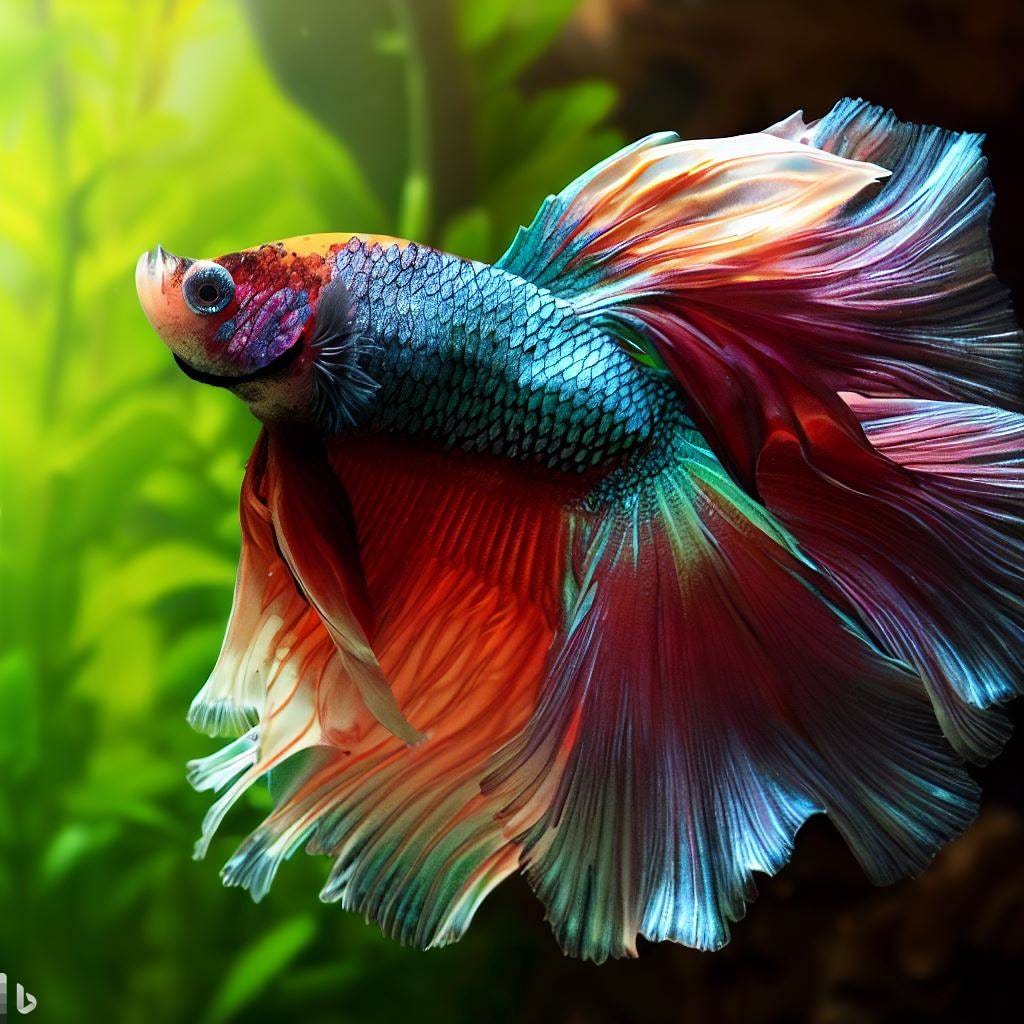Betta Fish Care: Important Tips for a Healthy And Balanced and Delighted Pet Dog
Wiki Article
Everything About Betta Fish: Comprehending Their Unique Needs, Behavior, and the most effective Practices for Ideal Care
Understanding the unique requirements and behaviors of Betta fish is necessary for any aquarist looking to supply optimal care. betta fish. As we explore these elements even more, the implications for both novice and knowledgeable fish keepers come to be progressively obvious, raising concerns concerning exactly how ideal to suit these remarkable fish in our homes.Betta Fish Review
Although commonly appreciated for their dynamic shades and streaming fins, Betta fish, scientifically understood as Betta splendens, are complex creatures that call for certain like prosper. Stemming from Southeast Asia, these freshwater fish are known for their territorial nature and one-of-a-kind actions. Betta fish exhibit sexual dimorphism, with men displaying extra dazzling colors and longer fins than ladies.Their hostile tendencies, specifically among males, necessitate mindful factor to consider when real estate them. Bettas are typically kept in single-specimen tanks to avoid territorial disagreements. They can exist side-by-side peacefully with particular suitable species in bigger neighborhood storage tanks, supplied the setting fulfills their requirements.

To make sure optimum treatment, aquarists must understand their special behavior qualities, dietary demands, and habitat demands. betta fish. With correct focus, Betta fish can show their vivid personalities and flourish in a properly maintained fish tank setting
Natural Environment and Setting
Betta fish prosper in a diverse series of all-natural environments, mostly discovered in the shallow waters of Southeast Asia, consisting of rice paddies, swamps, and slow-moving streams. These atmospheres are defined by warm temperature levels, normally between 75 ° F and 82 ° F(24 ° C and 28 ° C ), and a pH level ranging from 6.5 to 7.5, which is ideal for their wellness and wellness.
In their natural environments, Betta fish are accustomed to dense vegetation, giving both sanctuary and breeding grounds. The presence of plants such as drifting water lilies and thick turfs not only uses security from killers however also adds to the oxygenation of the water, which is essential for their respiratory system requirements. Additionally, these settings typically have locations of still water, enabling Betta fish to show their natural actions such as bubble nesting.
Comprehending the natural habitat of Betta fish is important for fish tank lovers. Reproducing these conditions-- via water temperature, pH equilibrium, and the incorporation of live plants-- can dramatically improve the total health and durability of these exciting fish, ensuring they prosper in a home fish tank setting.
Social Habits and Interactions
Understanding the social habits and communications of Betta fish is important for successful fish tank management. Betta fish, or Siamese battling fish, are understood for their one-of-a-kind behavioral traits, defined largely by territoriality and aggression. Males, specifically, present highly aggressive habits in the direction of one an additional, bring about the notorious credibility of Betta fish as boxers. In a constrained space, two males can take part in fierce fights, usually resulting in injury or fatality.Alternatively, women Bettas show much less hostile habits and can exist together in groups, recognized as sororities, if presented effectively. It is crucial to check their communications closely, as hierarchy and prominence can lead to disputes. Comprehending the characteristics within a Betta area is essential; establishing hiding spots and ensuring enough area can mitigate aggressiveness.
Furthermore, Betta fish may additionally show interest and social actions towards various other types. While they can coexist with certain non-aggressive container mates, it is vital to select suitable types to avoid stress and anxiety and aggressiveness. In general, recognizing these social communications is essential to fostering a harmonious fish tank environment for Betta fish.
Vital Care Standards
Offering correct care for Betta fish is important to their wellness and well-being. Routine water adjustments-- around 25% once a week-- assistance keep water high quality.Betta fish call for a suitable storage tank dimension; a minimum of 5 gallons is advised to offer adequate area for swimming and hiding. Consist of decors and plants to create a stimulating atmosphere, yet stay clear of sharp objects that could hurt their delicate fins.

try this web-site Last but not least, make certain the storage tank is geared up with a filter to keep the water clean, yet use a mild filter to prevent strong currents that can stress the fish. By adhering to these crucial treatment standards, proprietors can promote a healthy and vibrant Betta fish.
Common Wellness Issues and Solutions
In the care of Betta fish, understanding of typical health problems is crucial for keeping their wellness. One widespread issue is fin rot, usually brought on by inadequate water top quality or microbial infection. Signs include frayed or blemished fins. To treat fin rot, improve water problems and consider utilizing a broad-spectrum antibiotic.One more common condition is ich, a parasitical infection defined by white places on the fish's body (betta fish). Treatment includes raising water temperature and adding fish tank salt to the tank, click here for more as this can assist eliminate the bloodsucker
Swim bladder problem is also often observed, bring about buoyancy problems. This condition might emerge from overfeeding or irregular bowel movements. A fasting duration of 24-48 hours, followed by a diet plan of blanched peas, can give relief.
Finally, bettas might endure from velour disease, suggested by a gold dust-like appearance on their skin. Therapy typically requires medicine particularly made for external parasites, together with improved tank hygiene.
Regular tracking of water specifications, preserving a tidy atmosphere, and providing a balanced diet regimen are important preventative actions. By addressing these health issues promptly, Betta fish can lead healthier, more vibrant lives.
Conclusion
In summary, successful betta fish treatment calls for an understanding of their one-of-a-kind demands and actions. Giving an ideal atmosphere, including suitable tank size and water conditions, is important for their well-being. Additionally, identifying their territorial additional hints nature and making certain ample concealing spots can prevent aggression. Normal tracking of health and wellness and water quality, in addition to a balanced diet plan, adds to the long life and vibrancy of betta fish. Sticking to these guidelines will cultivate a flourishing aquatic ecosystem for these exciting animals.Report this wiki page